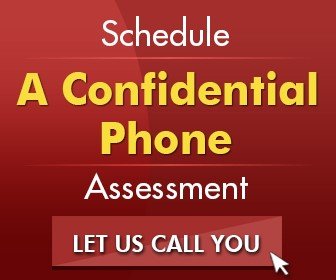Addiction effects the entire family, and active family support is key to a successful recovery. We examine how families can get involved in addiction treatment for the best possible outcomes.

Sharelines
- “My parents were shocked by how much there is to learn about addiction.”
- Addiction treatment is more successful when family gets involved.
At The Edge, we understand that addiction is a family disease. We have seen first-hand what a difference it makes for our clients when family counselling is part of their addiction treatment regimen. That is why we encourage the young men we work with to invite their closest family members to participate in their treatment programme.
Studies have confirmed both the central role of family in addiction treatment and under-involvement of family in conventional treatment methods. Here at The Edge, all of our participants have the opportunity to bring their families into treatment with them for three days, during which they learn to understand addiction and participate in counselling with their loved ones. This programme has been shown to help repair relationships, strengthen family bonds and establish more effective outcomes for young men undergoing treatment at The Edge.
Take our programme graduate Chris for example, who says about his experience at The Edge rehab “The family programme was great because my family had no idea (how addiction works). It really helped. It gave us a bridge to converse. (After coming to The Edge) they understood addiction and what I was going through. I didn’t think I needed rehab. For the first few weeks I thought I was in the wrong place and kept looking for differences rather than similarities. I’m on better terms with my family now – it’s like night and day.”
Family Roles in Addiction and Recovery
While the road to recovery may appear to be a personal journey, it often actually ends up being a group effort. Family members have a role to play in every phase of addressing addiction – from the earliest stages of encouraging them to seek treatment on through the maintenance of ongoing recovery.
For the family members of those who are struggling with addiction, finding ways to openly address the addiction can be one of the most difficult aspects of recovery. Loved ones understand that the addicted person means well – that they are a prisoner of their own addiction. And in an effort to show them compassion and support, family members can easily end up enabling the addiction instead.
If your family member is suffering from addiction, you may not know how to broach this topic. Telling a loved one that you desperately want them to seek treatment can feel confrontational, even when doing so is motivated by their best interests. For this reason, family members may choose to ignore the addiction because they are afraid of alienating or ostracising their loved one with an intervention.
Regardless, denial usually plays an integral role in addiction, and the process of recovery cannot begin until one accepts that they have a problem in the first place. When their denial is deeply ingrained, it often falls to their closest friends and family members to help them understand the reality of their problem.
At The Edge, we work with the entire family to help the young men under our care overcome addiction. In some cases, this may begin with a consultation with the family, during which we educate the parents about the root causes of addiction. During this consultation, we can also advise parents on how to help their son accept the reality of his addiction and his need for treatment.
Parents Learn a Great Deal about Addiction through Family Counselling
Parents of young men who are struggling with addiction often misunderstand the nature of their son’s illness. They may believe that his substance abuse is a form of acting out – that it essentially equates to bad behaviour. But this misses the root causes of addiction.
To be fair, substance abuse may partially occur in reaction to other problems. In many cases, the following symptoms manifest before substance abuse even takes place:
- Boredom
- Irritability
- Sense of meaninglessness
- Lack of purpose
- Restlessness
- Strong discontent
In this sense, it may appear like the person is acting out or reacting against these symptoms. But this is only a superficial view of addiction. What parents and family members often come to realise through these family sessions is that addiction is first and foremost a brain-based disorder – a progressive illness with a genetic element at play. The addiction develops as a symptom (rather than the cause) of the disorder.
As Edge graduate Sam told us, “My parents were shocked by how much there is to learn about addiction.” We find that this is often the case. Educating the family along with the client puts everyone in a better position for success after the inpatient portion of treatment comes to a close.
How Family Addiction Treatment Programming Sets You Up for Success
Family members are often not equipped to help their loved one tackle a problem as deeply rooted and complex as addiction. With this in mind, the most effective addiction treatment programmes also feature education modules for close family members. These could include recovery workshops or actual family counselling sessions, during which the addicted person and their family members can develop tools to encourage ongoing recovery beyond the initial treatment regimen.
At The Edge, we operate a unique addiction family programme that allows parents to get involved and play an active and supportive role in their son’s recovery. The client’s closest family members are invited to come for three days of addiction education, workshops and family counselling with the client. In the process, they learn more about how addiction works on the mind and body and gain a deeper understanding of the treatment process. This helps them better support their family member both during the initial treatment phase and as recovery progresses.
Bringing close family members in for additional counselling helps them understand addiction, while supplying them with coping strategies and laying the groundwork for ongoing family therapy. The tools and strategies that family members acquire during counselling and workshops will help the client resist relapse and remain strong in their recovery. It paves the way to a successful ongoing recovery long after the initial inpatient treatment is over.
If you would like to learn more about our revolutionary addiction treatment programme for young men – as well as how families are invited to participate in treatment – contact the addiction treatment specialists at The Edge today.





